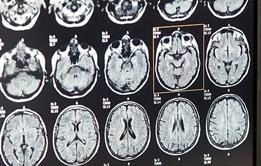HSJ’s analysis of trusts’ performance on stroke care shows there is a long, long way to go.
The Care Quality Commission ratings for 2008-09 reveal stroke care to be the laggard of the major targets. While barely a third of trusts fully met the target, almost one in six was deemed to have failed. And the target itself leaves considerable room for manoeuvre.
Mismanagement of beds is leading to patients suffering avoidable disability because clinicians and managers refuse to listen, learn and change
NHS East of England had the worst regional performance rating, with more than 70 per cent of the 17 acute and specialist trusts measured not achieving the stroke indicator.
The frustration about the slow progress is that the goals are not difficult. They do not depend on a complex new surgical procedure or expensive drugs. They are based on clear, common sense guidance from the Royal College of Physicians such as giving a brain scan within 24 hours.
Success factors include training staff to recognise the symptoms of a stroke and ensuring rapid treatment in a specialised stroke unit.
Collaboration is key, with accident and emergency staff working with ambulance crews and colleagues at other hospitals to ensure patients are diagnosed quickly and taken to the best facilities in the area for stroke care, not just the nearest.
In a detailed and thoughtful response to HSJ’s questions - published in full on hsj.co.uk - stroke tsar Roger Boyle revealed some hospitals are wilfully blocking progress, refusing to accept robust and consistent evidence that the most effective way to treat stroke patients is in a specialist unit. In plain language this means that mismanagement of beds is leading to patients suffering avoidable disability because clinicians and managers refuse to listen, learn and change.
Stroke care has improved over the last 10 years, and continues to do so. But too many trusts are taking too long to achieve too little. First class stroke care saves money, saves lives and avoids or minimises disability. Managers should be driving improvements in the service hard and fast.
Trusts fail to keep up pace on stroke targets

Fewer than 40 per cent of acute and specialist trusts are achieving the required standards of stroke care.
- 1
 Currently
reading
Currently
reading
Hospitals are blocking stroke care progress, and patients are bearing the cost
- 3
- 4


































No comments yet